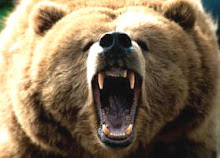Duel
Director - Steven Spielberg
Year - 1972
The Opening:
Shown from the perspective of a car driving on the road. A radio voice over plays over the top of the car driving, the sound diegetic and coming from the cars interior. The radio station keeps switching between presenters and commentaries, speaking about various news of the day, including weather and a crime in the local area. The car continues driving as the image crossfades, credits showing as the car continues on the road. We see the camera from the cars perspective at several points, as if a hint of things to come; somebody may see the car from behind, and this is reflected in the driving of the car. Panning shots are also incorporated in order to show the car travelling a long distance.
Credits are shown rising across the screen between cross-fading shots, the font yellow and eye-catching, to show the cast and crew of the piece. Steven Spielberg is the last name to appear, the director being seen as the most important character of the piece. We see the man driving the car from behind, with no passenger present, to create a foreboding sense that something will come up behind and attack him. A long car journey ensues, with the camera dissolving into the film, the opening creating a dark and sinister tone.
Speed
Director - Jon de Bont
1994
The Opening:
Scary music showing the lowering of an elevator, with little else occuring, showing the descent of the elevator in the shaft. The music is exciting and fast paced, and the introduction up to the credits relies entirely on the quick successive music to drive the narrative, with the credits appearing upon the screen, moving in time with the movements of the lift. This same scene continues for a couple of minutes, the lift gaining speed and flashing lights shooting by, until the lift comes to a grinding halt, 'Speed' bursting across the scene with non-diagetic sound representing a boom, shooting the words across the screen.
Comparisons
Many comparisons can be drawn between the two films, and these are all mediated by the impact on the audience. It is interesting to note that, whilst Speed's opening is a far simpler design, the overall affect is more engaging for the viewer. Speed's primary focus is upon the music to drive the introduction, which is essentially just a panning down shot of an elevator shaft. Our teacher even muted the volume whilst we were watching it, and it was interesting to see how people's attention and focus was broken and how quickly it happened. Without sound, the atmospheric and quick-paced music to drive the opening, Speed has little to keep it going. Duel on the other hand relies upon complex narrative to drive the film, with no music as such, and instead a serious of radio stations being broadcast throughout the car. In terms of openings, Duel is a far more complex affair, featuring not only a variety of shots and camera angles, but also different locations and different media conventions. Whether it's placing the camera upon a car bonnet to film what's ahead, or having a non-existant passenger in the back watching the driver of the car, Duel relies on engaging the viewer in a far different manner. It's fitting that the more modern film caters to a more modern audience; those that like in-your-face action and quick, booming music to set the scene. To a modern audience, Duel does not hold up quite as well as it would have during the making of, as it focuses on a much slower build, gradually creating the atmosphere, rather than throwing us in at the deep end. From the initial offset, Speed is clearly a fast, action-packed thrill ride. Duel on the other hand loses out on this classification, but works well with a wittier and more thought out script, especially for the opening. Both engage the viewer, but as a modern audience myself, I must say that Speed had the most immediate appeal to me. However, I appreciate and respect that Duel is an elaborate and twisting story that requires a lengthy viewing, and maybe several after, to truly take it all in. Speed lacks this, but focuses on a sharper, more energetic edge.
Other comparisons may also be drawn; Speed focuses on low-key lighting and quick images. Duel on the other hand has bright sequences that show the audience what is happening clearly and with ease. It is easy at first glance to tell that Speed is going to be a thriller, yet stumbling into the opening of Duel, it could just as well be a documentary. The genre is not as obvious until later on in the film during Duel, the opening sequence designed to set the scene, as opposed to Speed's quick depth of charge to entice the viewer. All in all, both films are good representatives of the genre, though Speed is the most accessible to a modern audience, who have grown up with computers, mobile phones and fast living.



No comments:
Post a Comment